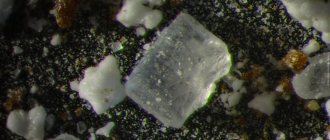Despite its diuretic effect, coffee, as it turns out, does not “flush” the kidneys. Will your favorite drink become a “stumbling block” on the way to the health of the most important pair of organs?
As soon as a portion of coffee enters the body, the kidneys intensively start working. The components of the drink increase renal blood flow, which is why the amount of urine formed in the kidneys increases almost 1.5 times. The diuretic effect helps eliminate toxic compounds from the body. However, coffee “turns off” the thirst signal, which creates the preconditions for relative dehydration, and with it, according to urologists, some kidney diseases start.
How can you maintain your addiction to a fragrant drink without harming a vital “pair” of organs?
How does coffee affect glomerular filtration?
The compounds present in coffee are the alkaloids caffeine and theobromine. As they enter the bloodstream, the kidney vessels alternately dilate, and the pressure in them changes.
The first to enter the bloodstream, 5-7 minutes after drinking coffee, is caffeine. Under its influence, the blood vessels of all organs, except the kidneys, narrow. The vessels of the latter, on the contrary, dilate; the volume of blood pumped through them temporarily increases. The overall blood pressure also increases slightly.
After another 25-30 minutes, with the onset of action of the second alkaloid - theobromine - the vessels of the kidneys narrow, and those of all other organs dilate.
After such “opposite” effects, even healthy people sometimes experience a feeling of “tightness” in the kidney area. Therefore, due to the risk of increasing renal pressure, coffee is absolutely contraindicated for most kidney diseases.
So, with pyelonephritis - bacterial damage and inflammation of the renal pelvis - one of the mandatory “points” of recovery is reducing the pressure in the kidneys.
Pyelonephritis is characterized by a fairly long course and frequent chronic inflammation. If we add to this a long-term increase in pressure caused by “coffee” alkaloids, the lumen in the arterioles will soon narrow, which will entail undesirable changes in the nephrons. Therefore, in case of acute inflammation, when the kidneys hurt, the consumption of all caffeine-containing drinks, including coffee, is strictly excluded.
Its very minimum amount is allowed only for pyelonephritis in the chronic stage; although the best option would be a glass of mineral water, selected taking into account the recommendations of a urologist.
To drink or not to drink?
Is it harmful to drink coffee with milk when kidney stones are found? Coffee with milk is a favorite drink of many. Therefore, the question of whether it is possible to drink it for stones and other kidney diseases is one of the first concerns of a person who needs a special diet. Coffee with milk, as well as without it, contains a certain amount of caffeine, so in large quantities it definitely harms the patient’s body and the condition of his kidneys.
Remember that indulging in caffeine-containing products causes hypertension faster and more often in people with urolithiasis than in the rest of the population.
Despite this, some nutritionists are inclined to believe that in minimal quantities, coffee with milk is not capable of harming a sick person and directing the course of the disease in a negative direction. New stones will not form under such dietary conditions, and the size of old ones will not change. Drinking coffee with milk can mainly be done by those patients who have been diagnosed with mild forms of the disease, who strictly adhere to the prescribed diet and periodically monitor the condition of their kidneys.
According to urologists at the University of British Columbia in the Canadian city of Vancouver, coffee is extremely undesirable for urolithiasis, since frequent consumption can provoke a rapid increase in the content of calcium, magnesium and citrates in the urine, which affects the development and growth of the main types of stones in the urinary system.
Don't pour salt... into your kidneys
Researchers say: restless coffee drinkers who drink bitter drinks 6 or even 8 times a day will definitely encounter an unpleasant “tingling” in the area just above the lower back - the place where the kidneys are located.
So can the kidneys hurt from drinking too much, and what does this pain signal?
Caffeine increases the “pumping” of blood by the kidneys, and urine formation increases proportionally. Mineral ions - magnesium, calcium, potassium - are also excreted in the urine more intensely.
Studying the effect of coffee on the kidneys, urological scientists from Canada determined that a serving of drink with 150 mg of caffeine “washes out” 5 mg of calcium from the body.
With increased urine output and insufficient fluid replenishment, mineral salts “layer” and settle in the renal ducts.
A series of experiments conducted by Canadian scientists in a clinical setting showed a significant increase in the concentration of calcium compounds in the urine in people who did not have kidney disease and drank more than 3 servings of coffee per day. The content of other “harbingers” of urolithiasis in the urine also increased - magnesium, citrates, etc.
With more moderate consumption (2 cups per day), no significant effect on ion balance was observed.
In addition, coffee is a drink with medium oxalate density. Oxalates are salts with reducing properties that can bind certain elements, including calcium. “Bound” calcium crystallizes, which in the future leads to the formation of grains of sand, and with prolonged accumulation - kidney stones. Moving during excretion in the urine, hard calcium grains of sand and stones with angular protrusions injure the mucous membranes of the urinary tract - the outflow of urine causes pain.
Is it possible to “lean on” coffee if you have urolithiasis?
With kidney stones, urine stagnates; with an increase in its quantity, the kidney tissue “stretches,” squeezing adjacent organs and also causing pain.
Fluid stagnation, characteristic of the “stone” disease, is manifested by morning swelling of the face and limbs. If the outflow of a large amount of urine is delayed, swelling from coffee can only intensify.
In addition, with the sequential narrowing and dilation of the kidney vessels (the effects of caffeine and theobromine described above), the stones can move and block the renal duct.
Caffeine isn't just in coffee
Diet therapy is an important part of the treatment of urolithiasis. It helps get rid of sand in the kidneys, prevents the formation of new stones and has a positive effect on the electrolyte composition of urine.
By correcting the diet for kidney stones, you can eliminate the causes of many diseases, eliminate foods that are harmful to the body, and also increase a person’s chances of getting rid of the disease.
So, nutritionists strongly recommend that if you have urolithiasis, you should not drink drinks that contain caffeine:
- coffee;
- strong black tea and chifir;
- hot chocolate;
- drinks like Coca-Cola, Pepsi and the like.
Not the iron lady's ally
Patients with chronic renal failure (CRF) often suffer from nephrogenic anemia - a decrease in hemoglobin due to incomplete elimination of harmful metabolic products by diseased kidneys.
Hemoglobin synthesis is closely related to the level of iron in the body.
Coffee is rich in two natural compounds that complicate the absorption of iron - tannins and caffeine. With a short break between taking food sources of iron and coffee, the latter reduces the absorption of the important element by more than 80%, which, with low hemoglobin, aggravates anemia.
Also, chronic renal failure is often accompanied by hypertension. It has already been said that in healthy people, after drinking coffee, the influence of caffeine causes a short-term increase in blood pressure. The kidneys excrete up to 12% of caffeine unchanged. And since in chronic renal failure the functions of this vital “pair” of organs are greatly reduced, the alkaloid is retained in the body, creating the preconditions for persistently elevated blood pressure. This, in turn, causes spasm of the kidney vessels and increases the likelihood of further damage to their structures.
Sick kidneys also struggle to process coffee essential oils. Accumulating in blood vessels, they turn into toxins.
Harm to the product
Before talking about interesting research by scientists about its effect on the course of kidney diseases, it is necessary to share information about the effect of the product on the functioning of organs.
- Drinking coffee is not recommended if your kidneys hurt. After all, it is these organs that remove up to 10% of caffeine unchanged. Because of this, in most people the daily volume of urine increases several times, which leads to disturbances in the metabolic processes of electrolytes and minerals in the body. For example, the product removes calcium and sodium in large quantities.
- It is known that coffee is a natural diuretic. However, the diuretic effect of the drink can cause dehydration, which primarily affects the kidneys. The fact is that with dehydration, the cleansing function of the organs deteriorates. At the same time, the concentration of uric acid, creatinine and urea in the urine increases. But that’s not all: due to dehydration, the load on the kidneys increases significantly, and the risk of thrombosis and blockage of the renal veins increases.
- There is evidence that drinking coffee beans causes a short-term increase in blood pressure. This especially applies to people who do not drink the drink all the time. Doctors have long known that kidney disease is closely related to the development of hypertension. The fact is that high blood pressure is fraught with kidney damage due to chronic narrowing of the lumen in the blood vessels and structural changes in organs (in particular, renal arterioles). Therefore, people with acute kidney disease should avoid drinking caffeine-containing drinks. In the chronic form of the disease, it is allowed to drink coffee in a minimal amount.
- Consumption of freshly brewed grains in large doses (6-7 cups per day) increases the risk of malignant tumors in the kidney structures. However, in fairness, it must be said that scientists have proven that with moderate consumption of the product, the risk of developing kidney, liver and prostate cancer is reduced several times.
The effect of coffee on stone formation
So, we have already found out that it is not recommended to drink coffee if you have diseased kidneys. But how does the product affect healthy organs? Should you be afraid of drinking coffee?
A number of sources claim that caffeine-containing products lead to the formation of kidney stones. But recent research by American scientists proves the opposite. It turned out that the risk of urolithiasis increases when drinking sweet soda. But coffee, tea, wine and even beer in moderate doses can reduce the risk of developing the disease.
But in case of renal failure, regular consumption of coffee can cause a deterioration in the patient’s well-being. It turns out that caffeine increases the symptoms of kidney disease and metabolic syndrome.
For example, experiments on diabetic rats have shown that when the substance is regularly ingested, the level of protein in the urine increases and the heart rate increases. It was also noted that the arteries of rodents become less flexible, which can lead to increased blood pressure.
Coffee for acute and chronic cystitis
Despite the fact that the product has a mild diuretic effect, it is not recommended to take it during the acute stage of the disease. The fact is that caffeine and tannins contained in coffee, black and green tea irritate the bladder, which can increase pain and worsen the patient’s well-being. In addition to taking medications, doctors advise drinking a lot of water.
For some people, drinking coffee during illness does not bring additional discomfort. Therefore, lovers of aromatic, invigorating beans can try drinking 1 cup of coffee a day, washed down with plenty of water. If you do not notice any deterioration in your health, you can continue.
Advice from the heart for the kidneys
Although urologists do not dare to call the tandem “coffee and kidneys” healthy, it is not difficult to put the addiction to aromatic drinks at the service of the health of the urinary system.
Caffeine does not directly promote the crystallization of salts, but only increases the excretion of fluid. If you are used to drinking coffee regularly, do not wait for thirst to set in. Drink a glass or even two of drinking water 20-25 minutes after it. It will neutralize excess uric acid and shift the “sour” urine reaction from coffee towards alkaline. In an alkaline environment, mineral salts, especially sodium and potassium, dissolve better.
Do not combine your favorite drink with iron-containing foods and medications; maintain a time interval between it and mineral complexes.
Instead of caffeine- and tannin-rich robusta, prefer the less strong Arabica. Its decoction contains more polyphenols and is less irritating to the urinary tract.
The benefits of mineral water
Mineral water for urolithiasis is an effective and indispensable remedy for quickly restoring metabolism and relieving pain. But it is important to know that you cannot drink medicinal mineral water in unlimited quantities; in this case, it will not only not have the desired effect, but can also harm the body.
Basically, a course of treatment with healing waters is included in the main complex of medical procedures that are used after the removal or crushing of kidney stones. The main goal of any course is to correct metabolism in the human body.
For maximum effect, most often, the doctor prescribes a full range of procedures:
- Reception of mineral waters
- Balanced diet
- Antibacterial therapy
- Physiotherapy
- Phytotherapy
- Sanitary resort treatment
- Physiotherapeutic procedures.
How to choose the right mineral water
Before determining what water to drink if you have urolithiasis, you should consult your doctor. Water is selected based on test results and a general examination of the body. But the most common are weakly acidic low-mineralized and low-mineralized alkaline waters. For therapeutic and prophylactic purposes, they usually drink half a liter of warm medicinal water per day.
Variety of mineral waters
Today you can find a huge variety of bottled water, but when purchasing it, you need to know exactly which one is medicinal and which is a regular soft drink. You should know that uncontrolled drinking of any mineral water can greatly harm the overall health of the body.
Mineral water is divided into several types:
- Medicinal – intended for the treatment of diseases such as: colitis, chronic constipation, gastritis, gastrointestinal diseases, urolithiasis and anemia
- Medicinal table water - from springs or artificial mineralized water, which helps normalize digestion and cleanse the body, but if used incorrectly can lead to disruption of the water-salt balance and deposition of salts in the urinary system
- The dining room is regular drinking water.
Benefits of Alkaline Mineral Water
Healing alkaline mineral water is water containing carbon dioxide and sulfate of lime and magnesia, where pH = 7.
It is worth noting that hydrocarbonates of this type have a number of advantages:
- Have a positive effect on protein and carbohydrate metabolism
- Have anti-inflammatory properties
- Helps reduce stomach acidity
- Normalize intestinal function
- Removes toxins from the body
- Affects maximum absorption of micro- and macroelements
- Increases the body's alkaline reserves.
But you should know that hydrocarbonate waters are not recommended in certain cases:
- In the presence of urolithiasis with stones larger than 0.8 ml in diameter
- If you have serious urinary tract diseases
- For bilateral chronic pyelonephritis
- Insulin-dependent diabetes mellitus
- Kidney failure.
The most common alkaline medicinal waters are Smirnovskaya, Borjomi, Slavyanskaya and Essentuki No. 4, 17.
It is difficult to find a person who refuses a cup of aromatic freshly brewed coffee early in the morning. The benefits of the drink and its beneficial effects on the body have been known for a long time, but for some diseases its use is undesirable. In this article you will learn about the effects of coffee on the kidneys. Can it be used for pyelonephritis, cystitis and stones? How does a product with added milk affect kidney function? Can coffee hurt your kidneys?
People with kidney disease need to take their health more seriously, follow a diet and drink caffeinated drinks in small quantities. Today you will learn about in what cases drinking coffee is contraindicated, and in what volumes you can drink it. At the end of the material you will find a video in which experts will talk about how invigorating coffee affects the kidneys.
Consequences of drinking too much coffee
Urolithiasis is quite painful. If the stones have many sharp protrusions, then the patient often experiences renal colic. These attacks cause severe pain that cannot be relieved by any painkillers, so the patient must be hospitalized.
The appearance of stones sharply increases the possibility of developing a tumor on the kidney structures. This danger is real if a person drinks 6-7 cups of coffee per day.
The appearance of a tumor in the kidney is very dangerous, since such tumors are usually malignant. Sometimes the tumor is benign, but this happens only in 7% of cases.
We must also take into account the fact that kidneys are difficult to treat with various methods. This is a very delicate organ. With its disease and subsequent therapy, there is a high risk of relapse of urolithiasis. Therefore, to prevent the onset of the disease, in order to avoid the negative effects of coffee on the kidneys, it is better to drink it in moderation - no more than 2-3 cups per day.
Effect of coffee on kidneys
Caffeine has a diuretic effect, removes fluid from the kidneys, causes dehydration, and makes urine thicker. All those minerals that are in the cells and ducts do not have time to be removed with a sharp outflow of fluid, and begin to accumulate. Over time, the layers of these minerals (mainly calcium) become overgrown with new particles, and stones form, which can impede the drainage of fluid and block the ducts. The accumulation of urine in the kidneys can cause them to swell, increasing pressure around surrounding organs and structures, which can also be the cause of the pain and discomfort that people with kidney stones commonly experience.
How does caffeine affect kidney structures?
How does coffee affect the kidneys? It has a great influence on the urinary system.
The reason is that about 9-10% of caffeine is excreted from the human body almost unchanged by the kidney structures. The negative effect of coffee on the kidneys is also reflected in the fact that with its constant consumption, diuresis significantly increases in many people.
This phenomenon leads to increased loss of fluid by the body, and the norm is exceeded by 1.3-1.5 times. At the same time, there is a sharp disruption in the metabolic processes of minerals and electrolytes.











